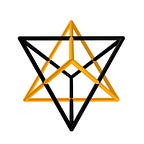A Quaker Village (QV)
I’m purveying a genre of science fiction in this story, drawing from real enough settings. I’ll mention real people, J. Baldwin for example, and actual events, such as our hanging out together, but then I’ll colorize my telling with various layers of futurism, as I’m attempting to share a kind of vision. Of a Quaker Village.
For historical context, lets accept that Quakers have pacifist tendencies. They’re schooled to avoid outward weapons, yet were groomed in the arts of debate, which tools we might describe in terms of a cyber-vista as “virtual” weapons.
They say social media have become “weaponized”. Quakers might employ satire for example.
A polity not resorting to outward weaponry sounds a lot like the orderly world projected by the courts (judges and lawyers and like that), wherein disputes are resolved, dealt with, before they spill outward, untreated, uncontrolled, and making a bloody mess (quite literally).
Because of this predisposition, when the proxy wars in Asia rolled around, post World War Two, some Quakers took refuge in Costa Rica (true fact) and, yes, Monteverde is lurking in the background of my storyboards, along with intentional communities such as Findhorne in Scotland. I’ve never been to the former, did visit the latter. My sister lived in Monteverde for some years.
Rockwell went to Monteverde 64 years ago. The year was 1951. He was 28 at the time and had just finished serving one-third of an 18-month prison sentence with three other members of his community. The men had refused to register for the draft. They were Quakers, a religious sect with a strong emphasis on nonviolence and equality that traces its roots to 17th century Protestant dissenters in England. [1]
Add a dash of Cuban DIY, from a time when it was forced from the cash crop economy and had to fend for itself.
Rural skills mattered, with or without some degree of mechanization, perhaps a Linux distro, bar codes, swipe cards… Small diverse crops, organic agriculture…
I’m not saying to enroll in this QV network you’ll need to become Quaker first. Indeed, think of “Quaker Village” more as a nickname that only some insiders give to these high tech templates, these campus communities.
Other groups might joke about “Westworld” and indeed I’ve been somewhat guilty of using such monikers as “EPCOT West” (alluding to Disney’s experimental “community of tomorrow”).
Tomorrowland was on the Spaceship Earth side of the lake, whereas Retroland (the other side of the lake) was all “Small World After All” nation-state pavilions. Safe for tourists.
I’m talking Orlando here (Florida), you may have been there?
A mere eight days after his sentence was finished, Rockwell joined 44 Quakers from 11 families in Fairhope as part of an exodus to Costa Rica. Some flew; Rockwell and his family drove, including his 72-year-old father and 65-year-old mother. The journey from Fairhope to San José, Costa Rica’s capital, took three months. It took one month alone to get to the first town across the border from Nicaragua — a distance of 12 miles. It was before the Pan-American Highway was completed. The Quakers from Alabama made roads when they found none. [Ibid]
Whereas Burning Man has taken over in a lot of ways, for staging and showcasing what the J. Baldwin types were up to, we don’t have many university experiments in year-round living.
Whole Earth Catalog was for DIY hippies, an early brand of Maker as we call them today. These people were serious about living off the grid, or at least outside the sprawling suburban model.
Maker Faires and Maker Spaces dot the landscape in many cities these days, in association various startup incubators.
How will we work the kinks out of the software unless we actively role play?
Cosplay. LARP. You be the cook, I’ll be the barber and/or hairdresser. We’ll let the cook cut the barber’s hair. We can practice our jobs in a mixed-use skyscraper, then deploy to a remote setting, to test our models.
When you show up for duty at a QV, expecting plenty of study time, discussion groups, language practice, you’ll also be expected to learn lots of jobs. Think of life on a cruise ship, where you’re a member of the crew.
The kitchen (galley) alone has a large number of tasks associated with it.
Workflow designers are always tinkering. Today you get to serve from behind the counter, collect dishes, then come back and stack later. Others will wash and prep.
The software gives you ways to route yourself through the weeks, weaving a tapestry that makes your school proud. The software is about roles, developing consensus, learning by rotation.
Which is not to say exceptions won’t happen. That’s where a playbook comes in handy, contingency plans, plus the logs, kept by Global U students who’ve come through before you.
We’re working on a lot of experiments. Ways to generate power is a common theme.
Some villages have their physical plant under control and are testing various psychological approaches.
Not that one need have everything physically taken care of before experimenting with self government.
Every village has its history.
Monteverde is still operational to this day.
[1] Schuessler, Ryan. Costa Rica’s Quakers dodged US draft, now face perils of changing world, Al Jazeera America, January 15, 2015 5:00AM ET.
